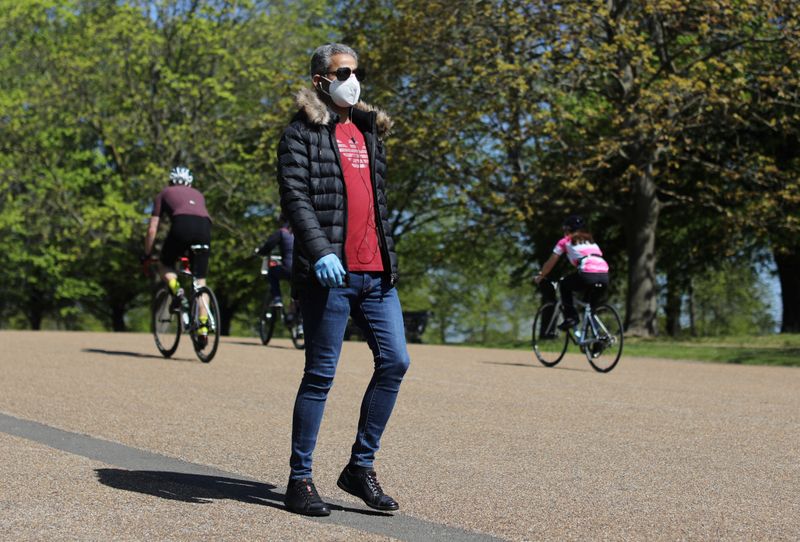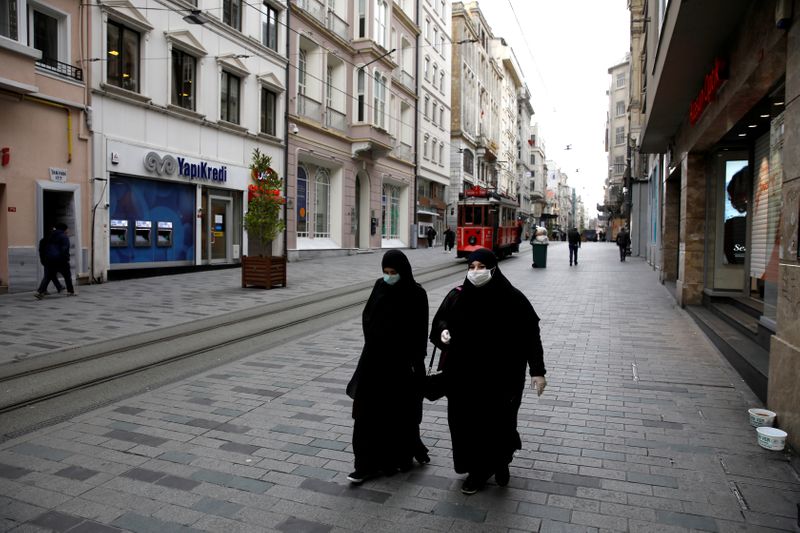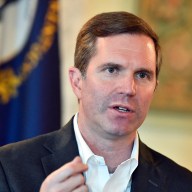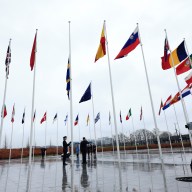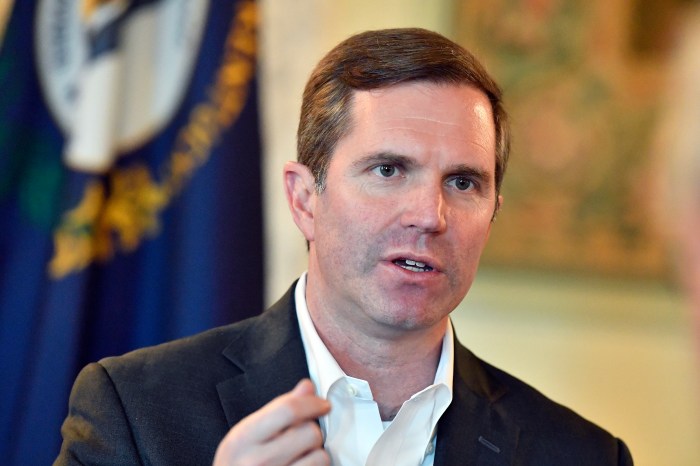(Reuters) – Here’s what you need to know about the coronavirus right now:
Lockdown hawks and doves
As the world’s largest economies contemplate how they will emerge from the social distancing measures imposed over the past couple of months, two schools of thought are emerging: a hawkish desire for a quick re-opening and a dovish preference to err on the side of caution…
Defying the lockdown
In the United States, around 2,500 people rallied at the Washington state capitol to protest their Democratic governor’s stay-at-home order, defying a ban on gatherings of 50 or more. Despite pleas from rally organizers to wear face coverings or masks, many did not.
U.S. President Donald Trump on Friday tweeted support for similar rallies in Michigan, Minnesota and Virginia, encouraging protesters to “LIBERATE!” their states from social distancing rules.
Skirting the lockdown
Italy’s government last week extended non-essential business closures to May 3. But that hasn’t deterred the more than 100,000 mainly small- and medium-sized companies which have applied to keep going or partially reopen.
In principle, a key hurdle for companies to keep doing business is to prove they are part of a supply chain to firms that are deemed “essential” in a government decree, such as food, energy or pharmaceuticals.
But the government, facing a backlog of applications, has clarified rules to say no companies need wait for government approval. So unless they have been told they’re not critical, all they need to do is to inform their local authority that they plan to reopen – and go ahead.
Lockdowns and…”discussion orgies”?
Germany’s Angela Merkel is known for her balanced and sombre language. But every now and then, she can exhibit quite an eye-catching turn of phrase.
“Merkel complains about ‘discussion orgies’ over opening”, ran a headline in the mass-selling daily Bild’s online edition.
Bild and other local media explained how Merkel used the expression to show exasperation at the uncontrolled public debate about how to move Germany out of lockdown, especially in regions that risked higher rates of coronavirus infection.
Some German retailers began reopening on Monday, along with car and bicycle dealers, and bookstores, under an agreement Merkel reached with state leaders last Wednesday.
Easy does it in New Zealand
New Zealand’s Prime Minister Jacinda Ardern meanwhile announced some of the world’s strictest lockdown measures would be eased from next week.
The Pacific nation of 5 million introduced its toughest “level 4” measures in late March, shutting down offices, schools and all non-essential services.
From April 27 it will shift down to “level 3”: Construction, manufacturing and forestry businesses will be allowed to operate under the new rules, meaning hundreds of thousands can resume work. Moreover, swimming at the beach, fishing and some surfing, rambling and biking will be allowed.
Turkey third-highest after Europe and U.S.
Elsewhere, Turkey’s confirmed coronavirus cases have risen to 86,306, its health minister reported, taking it to the highest total outside of Europe and the United States. Turkey only reported its first coronavirus patient on March 10, but has seen the number of cases rise sharply since then.
It now has the seventh-highest number of cases on a country basis.
(For an interactive graphic tracking the global spread, open https://tmsnrt.rs/3aIRuz7 in an external browser.)
Tokyo governor inspires computer game
Tokyo Governor Yuriko Koike’s entreaty to residents to keep away from each other has inspired a computer game of her navigating through crowds while uttering her daily call for social distancing: “mitsudesu”.
The game, published by Twitter user Gunjo Chikin, includes a character resembling Prime Minister Shinzo Abe, who provides two face masks to Koike as her social distancing circle expands as she moves to harder levels.
Critics have accused Abe of reacting too slowly to the pandemic, and some have ridiculed his plan to send two cloth face masks to every household in Japan.
(Compiled by Mark John and Karishma Singh; Editing by Nick Tattersall)

